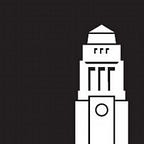Celebrating the innovative work behind assessment and student learning at Leeds
In my role as Academic Lead for Assessment and Feedback, I’ve been leading conversations around assessment, and working to implement the Assessment Strategy for the last two years. A key part of this has been the Assessment Matters seminar series, and recently launched SharePoint site.
There is a great deal of innovative work being conducted across the institution considering how and why we assess student learning. In order to celebrate and share this work, we organised an internal conference focused on assessment on Wednesday 17 April. Over 100 people registered for this inaugural Assessment Matters conference where we had 18 presentations and contributions from all faculties, from cross-institutional units, and from professional services colleagues. Discussions focused on assessment at all levels, from pre-sessional to Postgraduate Certificate in Academic Practice (PGCAP). The breadth of innovative practice and inquiry around Assessment and Feedback practices across the institution is impressive, and the conversation was a rich one. This speaks to the importance of assessment across all aspects of our practice.
Inclusive approaches were a key focus of the discussions. It is important that our assessment practices are inclusive, otherwise, what is the point? We want assessment to allow students to demonstrate their knowledge and skills, and doing this inclusively helps students feel a sense of belonging. This was illustrated by an excellent presentation from Dr Claire Tweedy, telling us about work on synoptic assessment (separating out assessment from teaching modules) in the School of Biomedical sciences.
The experience of students in their assessment at the University was also a key theme. For example, Dr Madeleine Pownall presented evidence examining how students feel about more authentic approaches to assessment, highlighting the importance of scaffolding these approaches. We critically engaged with concepts like ‘authentic assessment’ — considering what they mean for us in our context and for our students. An excellent roundtable discussion, chaired by Dr Katie Carpenter, considered the affordances and experience of outward-facing assessments, where students engage with external stakeholders, producing artefacts that have use beyond the assessment context.
We want assessment to allow students to demonstrate their knowledge and skills, and doing this inclusively helps students feel a sense of belonging.
It was a joy to see the rich culture of scholarship of assessment, which is growing across our institution. This is vitally important, allowing us to create an evidence-based approach to assessing students which is inclusive, authentic, and fair. I hope this is the start of something bigger.
We are in the process of creating an Assessment Research Group and would love for you to get involved. If you’d like to continue the conversation, please get in touch at p.birtill@leeds.ac.uk. Finally, I want to say a massive thank you to everyone who helped organise the day.
Dr Pam Birtill (Academic Lead for Assessment and Feedback)
